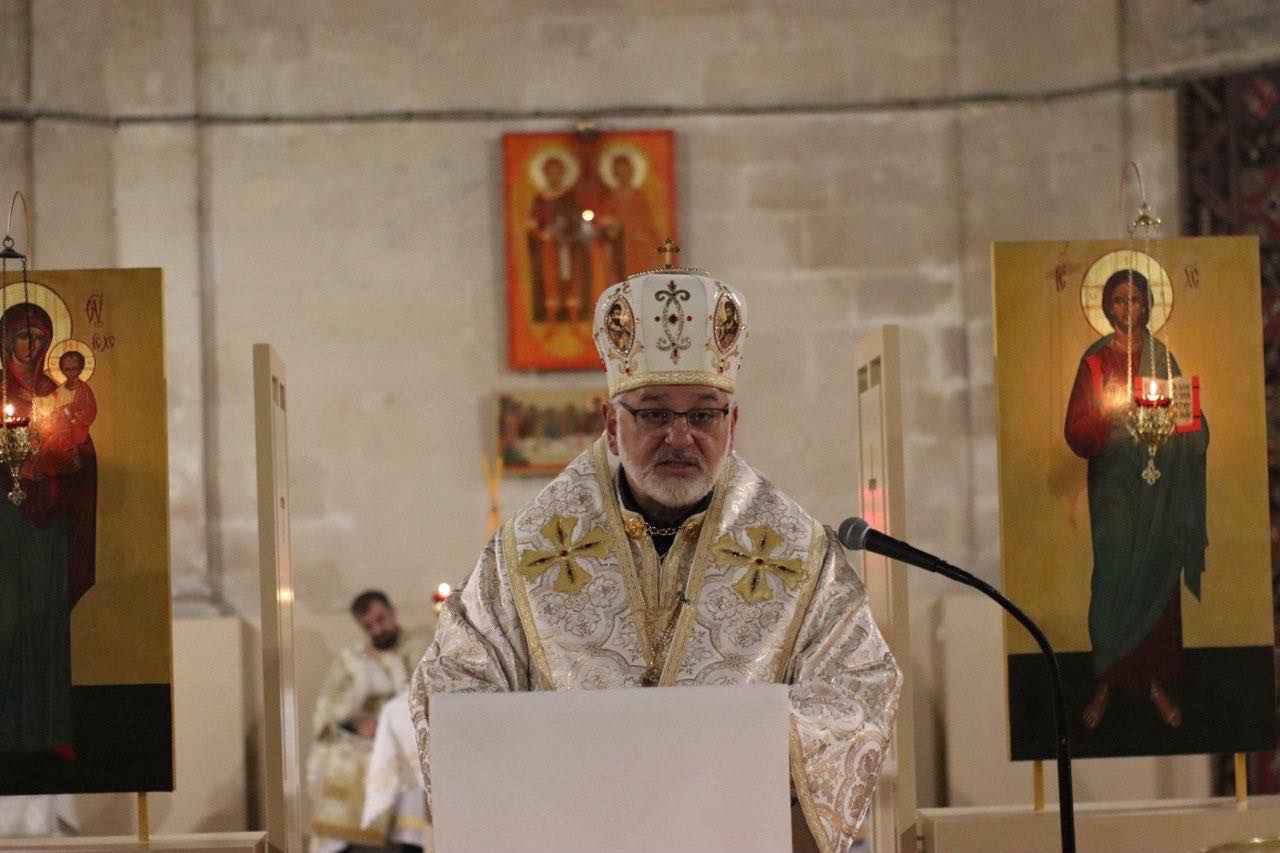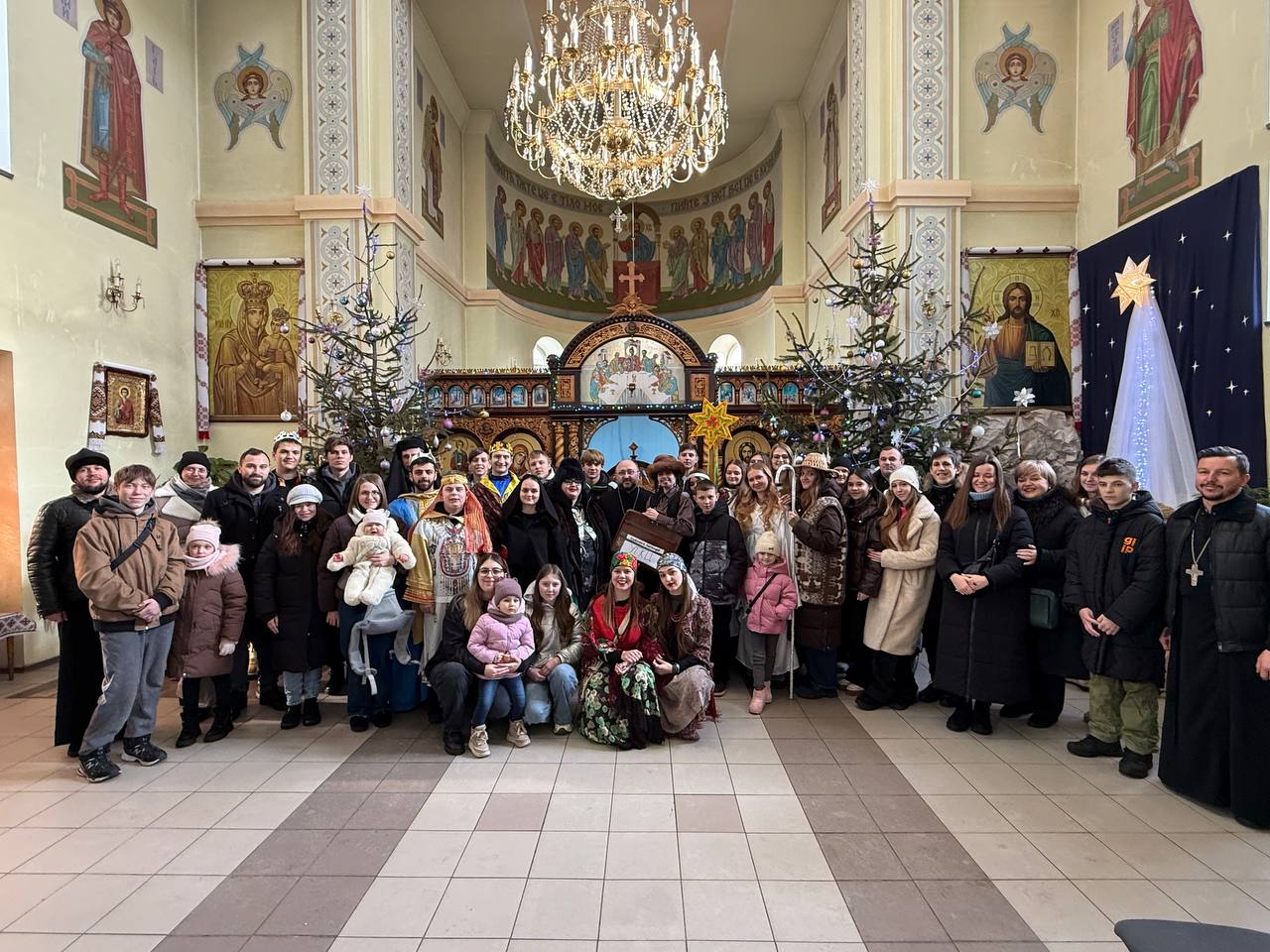«Encounter with the Living Jesus Christ: The Way to Conversion, Communion and Solidarity in Our world today!»

Recently, Bishop Bryan Bayda, Bishop of the Eparchy of Toronto and Eastern Canada, became the Chairman of the UGCC Patriarchal Commission on Youth.
We talked to the bishop about what he considers to be the work with young people, how he sees the further development of youth pastoral care, and how to build interaction with young people so that our church grows and their faith becomes stronger.
Bishop, what does working with youth mean to you?
As a representative of the UGCC by invitation of the Holy Father I was blessed to attend the Papal Synod of 2018 focusing on the theme, YOUTH, FAITH and DISCERNMENT of VOCATION. The Holy Father heard the wisdom of God by listening to many people gathered, including bishops, clergy, laity and especially young adults. In response to this gathering Pope Francis wrote a Post Synodal Apostolic Exhortation letter CHRISTUS VIVIT.
This very simple truth is very profound. Christ is alive in others. We must walk with each other, with all generations like Jesus walked with those on the road to Emmaus. We must listen, interpret and discern together.
This experience of mine at the Papal Synod gives me context so I might understand our UGCC wants me to walk with your youth. They have already been discerning many things for a long time, generation after generation of youth. I have the privilege of walking for a short time with those who are on their way already to “Emmaus”. I am learning to accompany others. I am learning to listen, to interpret and help discern vocations of the youth today with the wisdom and direction of the Patriarch and the support of the talented Patriarchal Youth Commission. I am honored to accompany our youth.
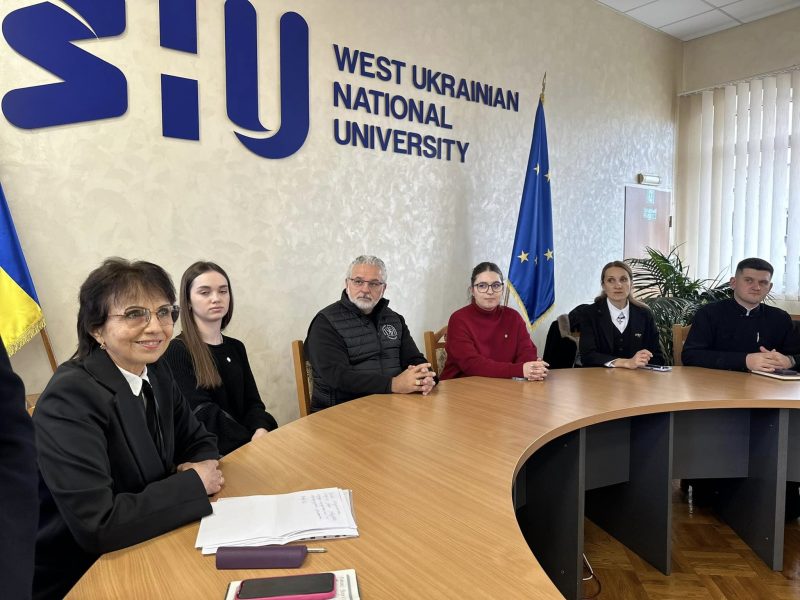
What are your impressions of youth ministry in Ukraine after your visit here, now in a time of war?
I am very impressed with those engaged in youth ministry in Ukraine. Their spirit, resourcefulness and determination, despite many horrific tragedies, is astounding.
Pope Saint John Paul II says the family is the nursery of love and forgiveness, kindness and compassion.
As we know this is challenged every day in Ukraine in serious ways during the war, yet the general community, the church and many charitable organizations have responded to this great need. I have seen specifically the efforts of the Knights of Columbus, the Catholic Near East Welfare Association, CARITAS, the Redemptorists, the Sisters Servants of Mary Immaculate, the Salesians and eparchial efforts to provide shelter and homes of mercy.
Along with them, many other groups and religious monasteries are providing youth with safety, shelter, food, a place for socializing, sacraments and a place to have fun is a very daunting task.
The focus on becoming Christ for others in the face of greed and destruction is more important than ever. The youth ministry on all levels is addressing these challenges best when it continues the mission of Christ. Those doing this ministry are truly inspiring to me.
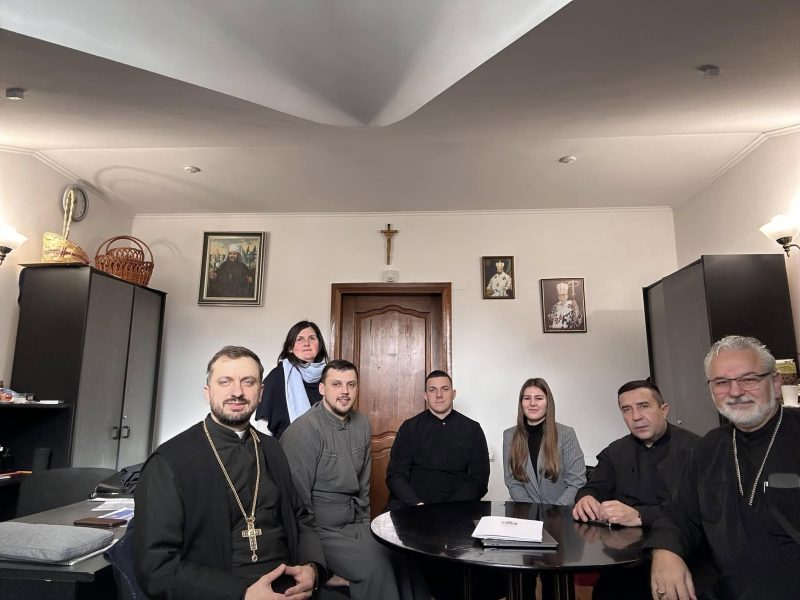
What are the similarities and differences between Ukrainian youth and youth in Canada?
There is a similar spirit that belongs to the youth across the world as pointed out by Pope Francis. Having a youthful hopeful spirit is central. One can have a youthful hopeful spirit at any age.
Having this hopeful outlook on the world comes from the Holy Spirit who carries out the will of the Father in heaven. This approaching year of Jubilee, 2025, will give everyone an opportunity to celebrate this.
So despite our many cultural, linguistic or geographical differences, youth recognize the unity we have in Christ. I would like to nurture this disposition as much as possible. Recognizing our common roots as brothers and sisters in Christ and how that has developed in the world uniquely in many places is necessary to understand better the mystery of God’s plan. God celebrates our differences. We cannot understand unity without recognizing differences. The evil one uses “difference” to divide and destroy with greed. However, God invites us to celebrate these differences because we are all children of God belonging to the mystical Body of Christ.
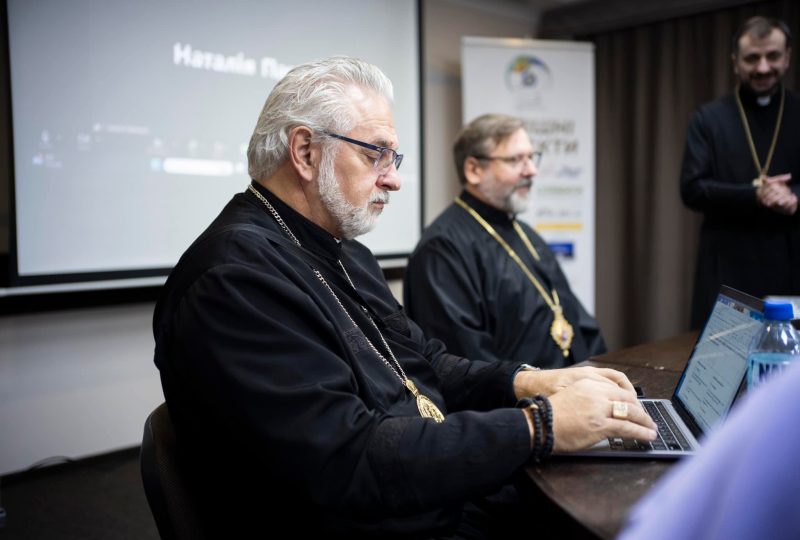
How would you characterize the interaction of our Church with youth?
In rural Ukraine, the villages and cities, I see there is a deep desire to provide for the future of Ukraine. This is true in Ukraine and in other countries where I have visited and worked with Ukrainians abroad, be it in Europe, Canada or the United States of America.
Therefore, the present population of youth and the protection of our youth is what motivates thousands of soldiers who are faithful members in parishes, mothers and fathers of youth, to defend against attacks on our sovereignty in Ukraine and freedom to worship in the name of Jesus. This is very evident in our churches.
The social assistance reported during our recent synod of bishops is a testament to the prayers and activities of our church parishes and organizations. Thousands of volunteers around the world are working to welcome migrant Ukrainians during this time. Organizations provide education and summer camp opportunities to heal many wounds: physical, psychological and especially spiritual.
The church with professional assistance continues to analyze what the problems are currently. They continue to learn about the changing situations and needs of the youth and their families. The church structures provide opportunities for faithful to volunteer and with close help from people like the Knights of Columbus, Catholic Near East Welfare Association and CARITAS, millions of dollars of aid and collectively millions of hours given by volunteers is something to acknowledge about the human spirit. The church and the faithful continue the healing ministry of Christ in very tangible ways. I have visited Ukraine four times this year alone and have seen this with my own eyes.
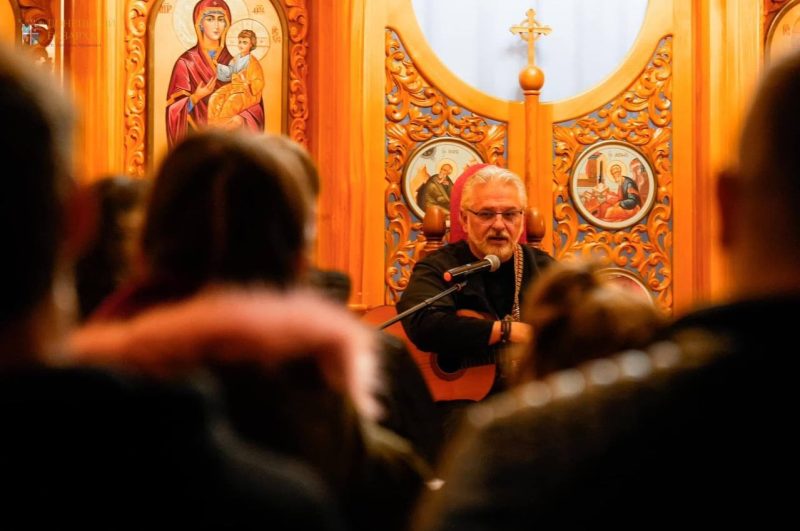
What, in your opinion, is lacking in our Church today so that young people would come more willingly and discover the Living God for themselves?
Youth want to belong. Youth want to belong to a family, a school, a parish or organization that has not only roots in the past but has people that are patient, understanding, kind, don’t judge, allow for mistakes, have a vision and are faithful friends. They find these in others who are witnesses of Jesus Christ since Jesus is the only perfect friend with whom every human heart wants to be a friend.
What is needed most today in our society in general, never mind just for our Ukrainian Youth, are people who witness to the love of Jesus Christ. We need humble people who are trying to witness to the Truth. Truth is a person, the second person of the Trinity, Jesus Christ who was the perfect witness to all of us of the love of the Father in heaven. This is more important than programs. These are the kind of people we need to carry out our programs.
Pope Francis reminds us in CHRISTUS VIVIT, Jesus is alive! He is alive in you. He is alive in me. He is alive but in some of us He seems to be asleep. It is time to be more aware of the Trinity that dwells in each of us. This is what is lacking in our Church today so that young people would come more willingly and discover the Living God, in our parishes and everywhere else.
What steps should priests and young people take to achieve complete unity and mutual understanding?
I would like to reiterate clearly what I just said.
What is needed most today in our society in general, never mind just for our Ukrainian Youth, are people who witness to the love of Jesus Christ. We need humble people who are trying to witness to the Truth. Truth is a person, the second person of the Trinity, Jesus Christ who was the perfect witness to all of us of the love of the Father in heaven. This is more important than programs. These are the kind of people we need to carry out our programs.
The steps that are needed are prayer and fasting. We must deal with humanitarian aid on every level, but to do this without a goal to follow Christ, well, this will greatly diminish the work of God in everything we do. If you want to achieve unity and mutual understanding, encounter Christ first in the sacraments, in scripture and in the poor. It seems to me the steps needed for unity and mutual understanding are well laid out for us in a document known as “The Church in America” (Ecclesia in America) given to us by Saint Pope John Paul II in January of 1999: Encounter with the Living Jesus Christ: The Way to Conversion, Communion and Solidarity in America. This is good advice for the world today, not only in America 25 years ago.
What are your advice or wishes for clergy who work with youth?
EVANGELIZE! Witness to others about your personal encounter with Christ first and foremost. Witness in your actions. Witness when you speak. Witness! Evangelize! Then you might consider catechesis.
Evangelization is a powerful thing. Let us recall how the Holy Spirit used the Samaritan woman at the well who had no formal catechesis. She witnessed! She witnessed to her personal encounter with Jesus Christ, even to those who persecuted her.
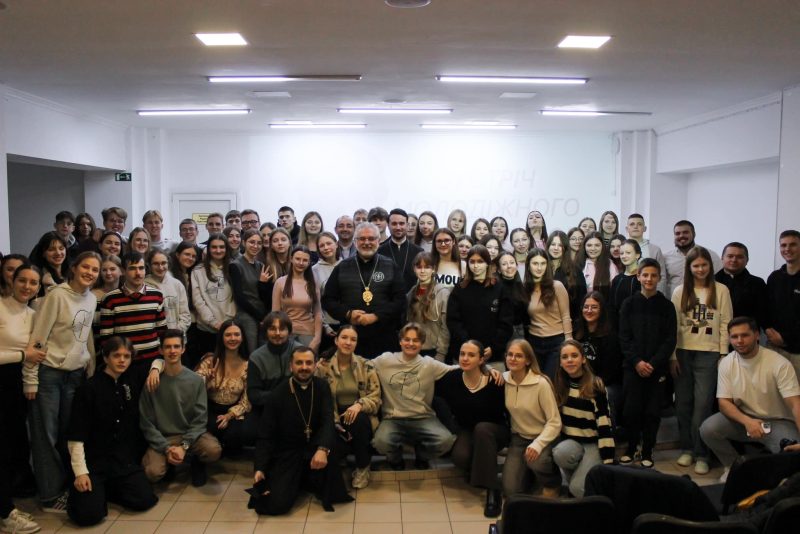
ПІДТРИМАЙТЕ ДИВЕН СВІТ
проєкту
ЧИТАЙТЕ ТАКОЖ













